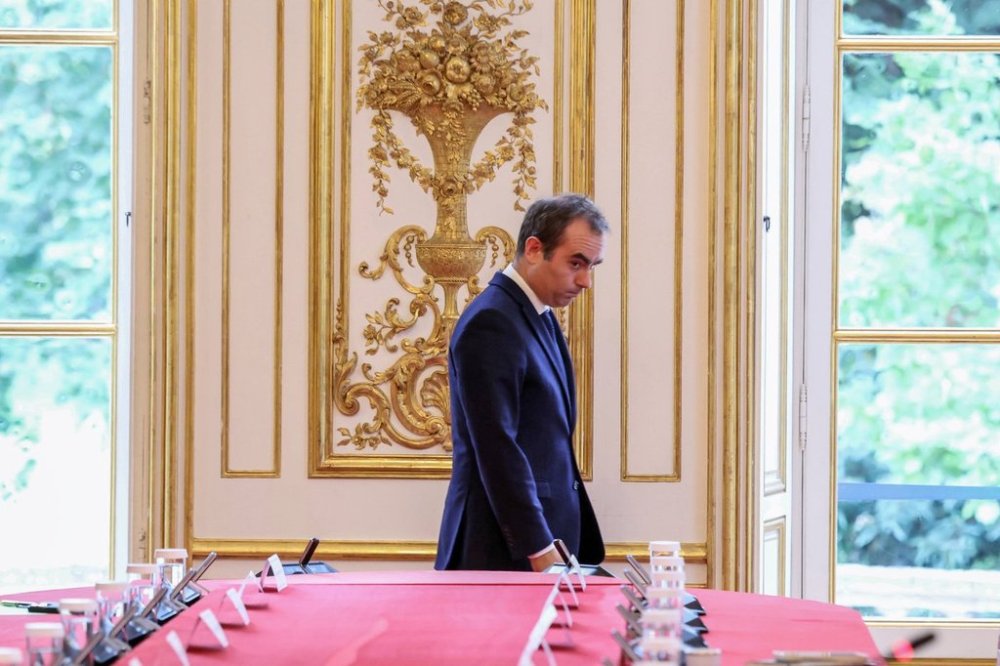French prime minister proposes suspending controversial retirement age law until 2027 election
Advertisement
Read this article for free:
or
Already have an account? Log in here »
We need your support!
Local journalism needs your support!
As we navigate through unprecedented times, our journalists are working harder than ever to bring you the latest local updates to keep you safe and informed.
Now, more than ever, we need your support.
Starting at $15.99 plus taxes every four weeks you can access your Brandon Sun online and full access to all content as it appears on our website.
Subscribe Nowor call circulation directly at (204) 727-0527.
Your pledge helps to ensure we provide the news that matters most to your community!
To continue reading, please subscribe:
Add Brandon Sun access to your Free Press subscription for only an additional
$1 for the first 4 weeks*
*Your next subscription payment will increase by $1.00 and you will be charged $20.00 plus GST for four weeks. After four weeks, your payment will increase to $24.00 plus GST every four weeks.
Read unlimited articles for free today:
or
Already have an account? Log in here »
PARIS (AP) — French Prime minister Sebastien Lecornu will propose the suspension of a contested plan raising the retirement age from 62 to 64, in a move to avoid his fragile minority government being immediately toppled.
Lecornu said Tuesday in a policy speech at the National Assembly that the law, a flagship policy of French president Emmanuel Macron, would be put on pause until after the next presidential election, to be held in 2027.
THIS IS A BREAKING NEWS UPDATE. AP’s earlier story follows below.

PARIS (AP) — With his government hanging by a thread, France’s newly reappointed prime minister must make concessions to his political opponents to avoid a no-confidence vote later this week, as the country struggles to end a lingering political crisis.
Sebastien Lecornu, renamed by President Emmanuel Macron after a week of political turmoil, met with his Cabinet on Tuesday to discuss the draft 2026 budget that lawmakers will examine over the next 70 days. Lecornu is set to deliver a policy speech at the National Assembly later in the day outlining the new government’s priorities.
Far-right leader Marine Le Pen’s National Rally and the far-left France Unbowed wasted no time in submitting censure motions against Lecornu, which will be debated Thursday.
The opposite sides of the political spectrum have slammed Macron’s decision to reappoint Lecornu, France’s former defense minister and fourth prime minister in barely a year. With less than two years before the next presidential election, National Rally is urging Macron to call another early parliamentary vote while France Unbowed wants Macron to step down.
The two parties do not hold enough seats to topple Lecornu’s government on their own, but the prime minister could quickly be undone if the Socialist Party and Green lawmakers join forces with them.
To avoid censorship and deliver a budget for the European Union’s second-largest economy before looming deadlines, Lecornu may be forced to abandon an unpopular pension reform that was one of Macron’s signature policies in his second presidential term. Rammed through parliament without a vote in 2023 despite mass protests, the pension change gradually raises the retirement age from 62 to 64. Opposition parties want it scrapped.
The Socialist Party has demanded the law be repealed and those calling for its suspension have gained a high-profile ally. Nobel Prize-winning economist Philippe Aghion told broadcaster France 2 that it should be suspended until the next presidential election to be held in 2027.
“I think we need to stop the clock now until the presidential election,” Aghion said, arguing that doing so would be “the way to calm things down” and “it doesn’t cost very much to pause it.”
Lecornu’s re-appointment is widely seen as Macron’s last chance to reinvigorate his second term. His centrist camp lacks a majority in the National Assembly and he is facing increasing criticism even within its ranks.
Macron’s surprise decision last year to dissolve the National Assembly resulted in a hung parliament and political paralysis.
Over the past year, Macron’s successive minority governments have collapsed in quick succession, leaving France mired in deadlock while confronting a rising poverty rate and a mounting debt crisis that has alarmed markets and EU partners.
